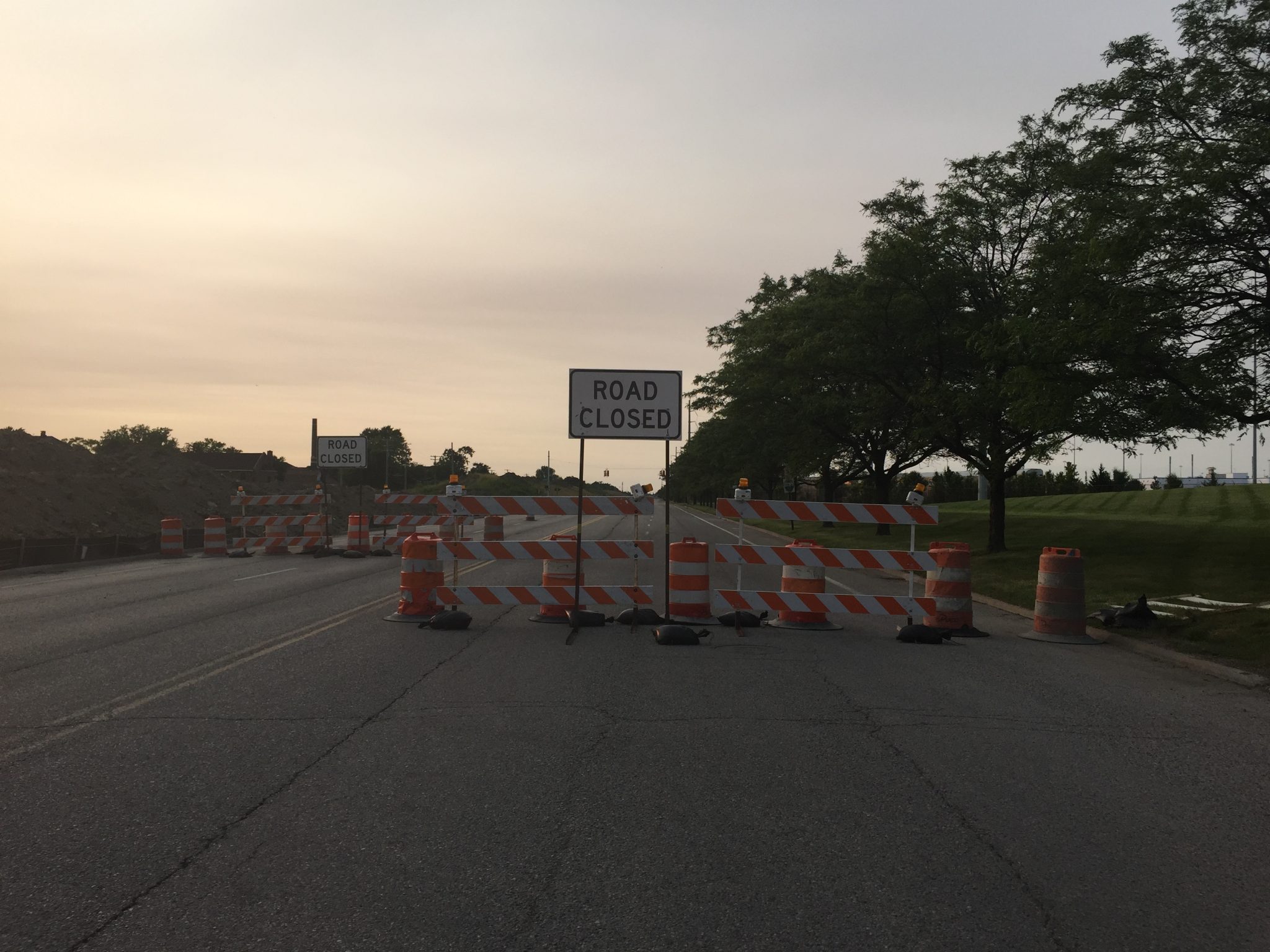Walking Beniteau Street in the Prelude to Fiat Chrysler’s Plant Expansion
The company is updating the Jefferson North Assembly Plant and converting the Mack Engine factory into an assembly plant. Residents have mixed feelings, remembering the change that previous projects have brought.


Walking down the sidewalk of Beniteau Street on Detroit’s eastside with a shotgun microphone covered in a fuzzy wind screen, I must stand out. Someone shouts: “What are you doing?”
I spin around and scan the block. There are well-maintained houses interspersed with blight and empty lots. But I don’t see any people.
“Where are you?” I call back.
“Over here,” shouts a voice from a nearby truck.
I walk over to the vehicle to find 25-year-old Amoni Pitts with bright blue hair that matches her polo shirt. I tell Pitts that I’m asking folks about Fiat Chrysler’s plant expansion in the neighborhood.
The company is updating the Jefferson North Assembly Plant and converting the Mack Engine factory into an assembly plant. The City of Detroit and the State of Michigan paid $107.6 million for land, plus the city swapped some of its land to give to Fiat Chrysler in exchange for the promise of nearly 5,000 jobs.
Once the expansion is complete, it will come right up to Beniteau Street, where Pitts lives. It will practically be in her backyard.
“When it looked like they were going to come over here and take this area, I said, ‘I will fight them’ tooth and nail, because I refuse to lose anything else.” — Trenesa Rhodes, resident

“Honestly, it’s bittersweet,” Pitts says. “It’s bringing jobs to the area, but you’re going to close off St. Jean.”
St. Jean – one street east – is going to be consumed by the expansion. Pitts says permanently losing the street will be a major inconvenience for her. She’ll have to find a new route to her job in Huntington Woods. Also, her brother, who she says is disabled and likes to walk along St. Jean, won’t be pleased.
“It’s his exercise for the day. He’s not going to be able to do that anymore.”
Up the street, Trenesa Rhodes owns three houses on Beniteau. She’s not really worried about the plant expansion.
“As long as they honor their word and put a nice brick wall up, I don’t have a problem with it,” says Rhodes.
A brick wall covered with ivy is to be erected along St. Jean, separating Rhodes’ houses from the plant. At one point, Rhodes says, it looked like the project was going to use the land her homes sit on. She says the company released an artist rendering that showed her street under the footprint of the plant.
“It makes no difference what we think about it. It’s a done deal.” — Loretta Lloyd, resident
“It looked like Beniteau was going to be deleted,” she says. But it turned out to be a mistake. The streets were mislabeled.
“What did you think when you thought that the plant was going to take Beniteau?” I ask.
Through her front door, cocked just enough for us to have a conversation, Rhodes responds slowly with conviction: “That they were not going to take Beniteau.”
“Nothing but a dust bowl”

Rhodes moved to the neighborhood when she was a little girl more than 40 years ago.
“They have taken away all the homes of my friends and neighbors that used to live behind us to the point that we actually ended up having our schools closed over here,” she says.
One hundred fifty homes were demolished in the late 1990s to convert the nearby Mack Avenue assembly plant to an engine plant.
“I remember when it was nothing but a dust bowl,” says Rhodes. Three decades later, that same plant is being converted back to an assembly plant.
“When it looked like they were going to come over here and take this area, I said, ‘I will fight them’ tooth and nail because I refuse to lose anything else.”
Across the street from Rhodes, Loretta Lloyd sits on a porch swing surrounded by bright pink potted flowers.
“I know we have to have progress. It’s alright with me what they’re doing,” she says. “It just would help some if they let us know a long time in advance, as opposed to a few months.”

Click on the player above to hear WDET’s Laura Herberg interview Loretta Lloyd on her front porch.
Lloyd has been in the area since her mother, a Chrysler worker, bought the house. She used to walk over to the plant with her siblings and meet their mother halfway to walk home. She says her mother would wonder why they stayed in the area all these years later, but she views the house with a sense of accomplishment and pride. This is home.
“I know how hard she worked to save the money for this house, and all of the generations that grew up in this house,” Lloyd says. “They don’t know any other [home] like this one.”
She went to the meeting developers held downtown to understand more about the plans, and offer community input. Nine community meetings like this were scheduled. But Lloyd says these opportunities are limited for citizen engagement.
“It makes no difference what we think about it,” she says. “It’s a done deal.”
Laura Herberg’s reporting was produced in partnership with the Race and Justice Reporting Initiative at the Detroit Equity Action Lab, a program of the Damon J. Keith Center for Civil Rights. This initiative is funded by the Knight Foundation, Ford Foundation and the Community Foundation for Southeast Michigan.
